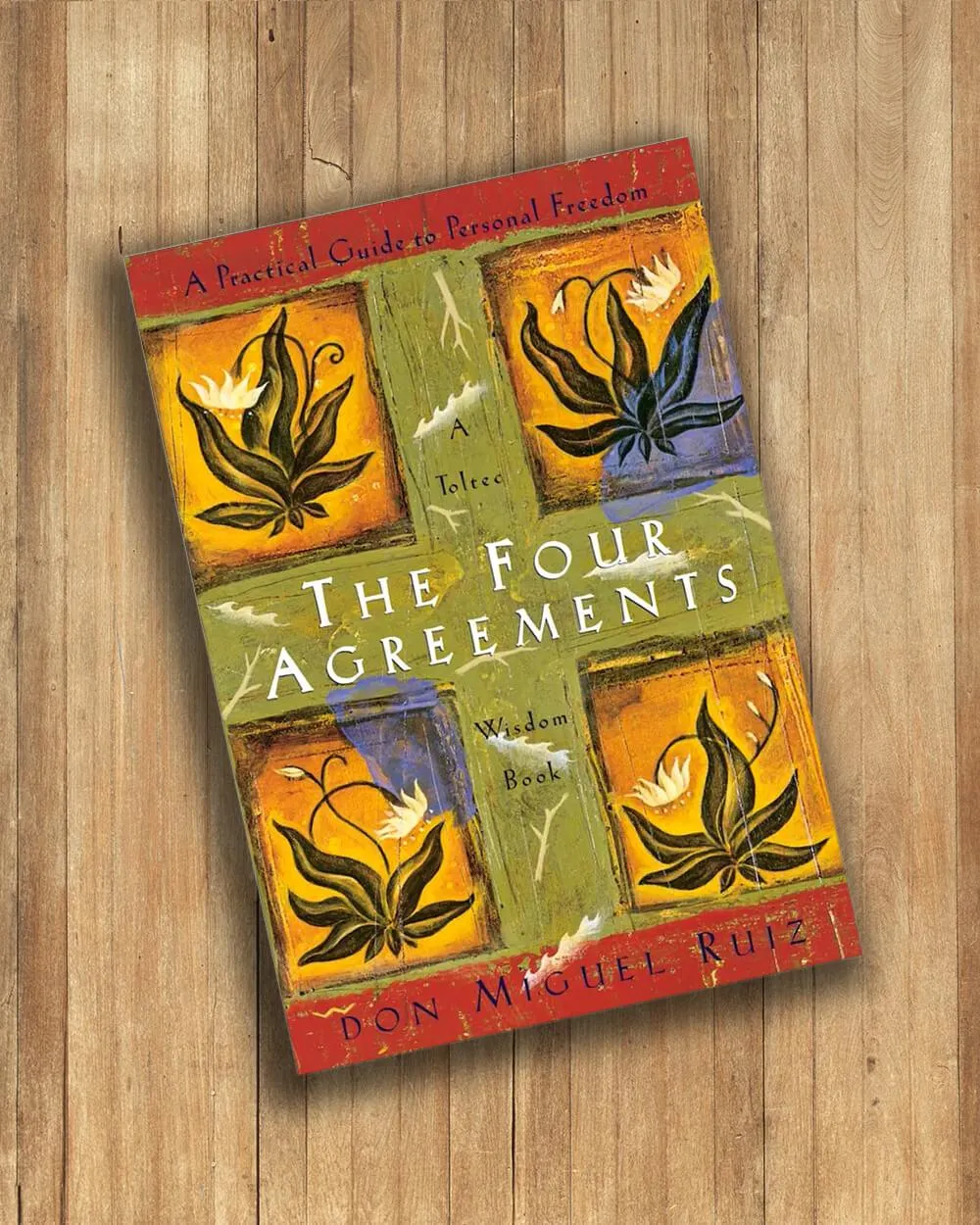
Book Recommendation: The Four Agreements
Why I Recommend Reading The Four Agreements
I didn’t expect a slender book with fewer than 150 pages to leave me moved, inspired, and reinvigorated. But The Four Agreements by Don Miguel Ruiz did exactly that. That's why I frequently recommend it to my clients.
Don Miguel Ruiz’s words reached into parts of me I had forgotten how to access the bruised child who needed to be seen, the grown-up still hustling for worth, the tired heart looking for peace. This isn’t just a self-help book. It’s a homecoming.
Before I read this, I had already done a lot of transformational work especially through the Landmark Forum, which truly changed my life. The Landmark work gave me powerful distinctions that helped me break through old narratives and design a new way of being. But here’s what I’ve learned: even the most profound transformation can fade when we’re not actively living from it. As they say in Landmark, “Today’s transformation is tomorrow’s ego trip.”
That landed hard for me.
When I picked up The Four Agreements, I was in a season where I had lost touch with the impact of my earlier breakthroughs. I had started drifting reacting instead of creating, surviving instead of choosing. Reading this book reminded me of everything I had once powerfully distinguished…but had forgotten or buried under the weight of being human. Our “default” way of being will always rise when we don’t intentionally live from a self-authored context.
Here are 7 lessons that stayed with me and some reflections on how they align with or expand on what I learned through Landmark:
1. You are not the voices in your head.
Ruiz introduces the idea of “domestication” the way we internalize societal beliefs, shame, and guilt that were never truly ours. It reminded me of Landmark’s distinction between “what happened” and “the story we made it mean.” So much of our suffering comes not from events, but from the meanings we’ve added. Realizing that so many of those voices aren’t even ours? That’s both heartbreaking and freeing. Ruiz gave me permission to lay them down and Landmark gave me the tools to stop letting them run my life.
2. Be impeccable with your word.
This isn’t about perfection it’s about responsibility. Landmark talks about integrity not as morality, but as workability. When you’re out of integrity, your life doesn’t work. Similarly, Ruiz teaches that being impeccable with your word especially the words you speak to yourself is foundational. I started noticing where I was out of alignment with myself. When I called myself “lazy” or “a failure,” I was breaking integrity with who I really am. The healing started when I began speaking like someone who mattered.
3. Don’t take anything personally.
Landmark calls this “distinguishing the occurring.” Ruiz calls it recognizing that everyone is projecting their own dream. Both point to the same freedom: that nothing others say or do is really about you. This was one of the hardest truths for me to integrate. I used to take rejection or criticism so personally. But both The Four Agreements and Landmark offered me this liberating insight: people are living in their own worldview. When you stop taking it on as your truth, you reclaim your power.
4. Everyone is dreaming their own dream.
Ruiz’s book describes how we are each living in our own world - a unique dream that is shaped by our experiences. This resonated deeply with the Landmark idea that we assign meaning to everything and those meanings are subjective, not factual. It reminded me that I’m not wrong or broken I’m just seeing the world through my lens. And so is everyone else. This shift helped me approach others with more compassion, and approach myself with more grace.
5. Don’t make assumptions.
Ruiz calls assumptions “emotional poison.” We tend to always assume the worst and act accordingly. Landmark taught me that anything can be worked out in communication and to deal with reality, not your story. Both approaches call us to the same practice: stop living in your head and start living in direct, responsible communication. I used to assume people were upset with me, or that I wasn’t wanted and I would spiral in shame. This book (and Landmark) taught me to ask. To clarify. To clean up. To stop building castles in the sand of silence.
6. Always do your best.
Ruiz reminds us that doing our best isn’t about achievement it’s about alignment. Your best today might not look like your best yesterday. And that’s okay. Some days, “your best” is getting out of bed. Other days, it’s writing a novel, forgiving someone, or feeding your kids while running on fumes. For someone who used to live in a cycle of proving and performing, this softened the rigid expectations I’d carry. It reminded me to lead with self-compassion. Doing my best with presence and integrity became enough.
7. Love is the only real truth.
This isn’t explicitly stated as an “agreement,” but it’s the heartbeat of the book. Ruiz puts it plainly we are here to love. To live in alignment with who we really are. While Landmark doesn’t frame its work in terms of love, I experienced that outcome. When you strip away the stories, assumptions, and inherited beliefs, what’s left is connection. Possibility. Love. And that love begins with self-love, which becomes the foundation for all other relationships.
The Four Agreements is not a book you just read it’s one you live. It reminded me of all the truths I’d once powerfully embodied and slowly drifted from. It brought me back to myself.
If you’ve ever done transformational work and found yourself wondering where that clarity went or if you’ve never done any and are just starting your journey this book is a beautiful compass.
I’d be happy to hear what this brings up for you. Schedule a call with us today.